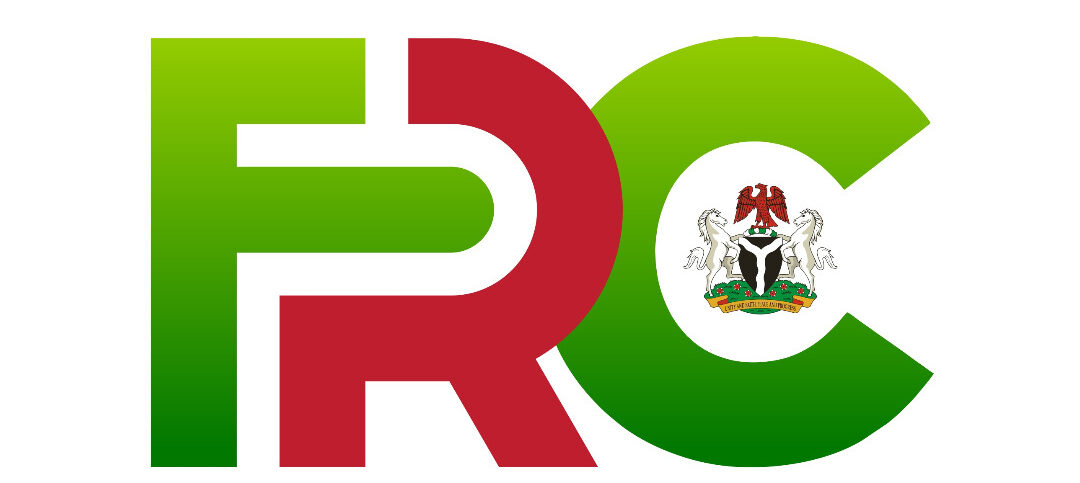The Financial Reporting Council FRC under the Renewed Hope Agenda of President Bola Ahmed Tinubu has frowned against the non transparent, accountable practices of the existing companies in Nigeria, hence creating suspicion among companies operating within the country and the foreign ones .
Aside all this non corporate conducts , government was simultaneously been denied the statutory revenues on the operations of the both local and foreign companies or partners, as well as paint a gloomy image of the country before the international communities.
The new leadership under the Executive Secretary, Financial Reporting Council FRC under Dr Rabiu Onaolapo Olowo has perfected plans to address without further delay by putting in place necessary machinery to address the lingering and unethical conducts that had dented the image of the country.
This was been done through advocacies, seminars , symposiums, talkshops and workshops as well as awareness program through paper presentation at seminars to nip in the bud or reduce to the barest minimum of the unbecoming act that had painted the country negatively before the international communities.
Coming at a time when the country’s is seeking for wholistic reforms of its revenue based through payments of appropriate taxes and revenues, with the current ways of operation , if not reversed and reconfigured, will end up not doing the country any good .
These negative development has affected the investors confidence and output due to falsified accounts by companies either through under declaring their profits or over declaring them through falsification.
According to the Executive Secretary ..
“Nigerian investors have lost billions of dollars due to companies falsifying and deliberately overstating their accounts, according to Rabiu Olowo, executive secretary/CEO of the Financial Reporting Council of Nigeria (FRCN).”
“He disclosed this while delivering a paper titled “Proactive Regulation: A Catalyst for Preventing Audit Failure” at the 2024 audit summit – stakeholders’ engagement in Lagos.”
“Olowo emphasised that these fraudulent practices have led to the downfall of numerous companies and caused severe financial damage to investors.”
” Olowo highlighted the need for stronger oversight and accountability in the financial reporting and auditing sectors. He pointed out that similar scandals have occurred globally, referencing notable financial collapses such as Enron, Lehman Brothers, and more recently, Wirecard and FTX. These incidents, he said, underscore the devastating consequences of corporate greed and audit failures.”
“Nigeria has not been immune to such audit failures. Between 1990 and 1994, the country’s banking sector alone lost over N6 billion ($42.9 million) due to fraud. Cases like the collapse of Afribank Plc in 2011 and the Cadbury Nigeria scandal between 2002 and 2005 revealed significant shortcomings in the auditing process, with auditors accused of facilitating the falsification of accounts. These failures not only resulted in substantial financial losses but also eroded investor confidence in the Nigerian capital market.”
“The consequences of these audit failures extend beyond financial losses. They have led to a loss of confidence in the capital market, a credit crunch, capital flight, and a significant drop in market capitalisation. For instance, the market capitalization of the Nigerian Stock Exchange fell from N13.5 trillion to N4.6 trillion in 2009. Additionally, pension funds lost about N2 billion in 2009, and investors became wary of the reliability of corporate financial statements.”
“Adding to this, Olowo emphasised that accounting and auditing are professions built on confidence, requiring the courage to uphold what is right, even when unpopular. This integrity is crucial to maintaining society’s trust in audits and auditors. He noted that audit reform must address not only the technical failings but also the human elements that contribute to audit failures. According to Olowo, it’s essential to distinguish between the failings of governance and management and those of audit practices. He stressed that laws alone cannot drive compliance; instead, creating a conducive social context is necessary to encourage ethical behavior and adherence to rules.”
“Olowo referenced legal scholars who argue that while laws promote prosocial behavior, their effectiveness depends on the social conditions surrounding them. He reminded stakeholders that genuine reform must focus on people as well as rules, as “only people, not rules, can make good things happen.” To this end, Olowo urged those present, both in person and online, to deliberate on strategies to prevent future audit failures in Nigeria, reiterating the adage that prevention is better than cure.”
“In response to these challenges, Olowo, who assumed office on October 16, 2023, has launched a transformational agenda for the FRCN. The agenda, termed “DOSE” (Digitalization, Operational excellence, Stakeholder Engagement, and Enforcement), aims to revitalise the Council and ensure adherence to best practices in financial reporting, auditing, and corporate governance in Nigeria. The FRCN plans to enhance compliance with the FRC Act 2011 and restore investor confidence by ensuring that financial statements from Nigeria are credible and reliable.”
“Olowo’s vision is to position the FRCN as a leading financial reporting regulator in Africa, capable of standing alongside its global peers. By holding corporations and individuals accountable, the FRCN aims to restore trust in Nigeria’s corporate reports and governance, aligning with President Bola Tinubu’s renewed hope for the nation’s economy.”
In line with amendment of its act , reforms and ongoing repositioning of its regulations in line with the government position on the new tax reform, no doubt the previous order will become a thing of the past .
Governments at all levels is geared towards mobilisation of adequate funds to mitigate the economic, social and Infrastructural development of the country yearning for more attention.
The moves when executed will reform the system, restore image loss of the country and sanitize the operation of both local and international companies operating in the country.
*ABUBAKAR YUSUF can be reached on yus.abubakar3@gmail.com.





